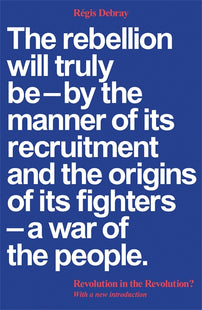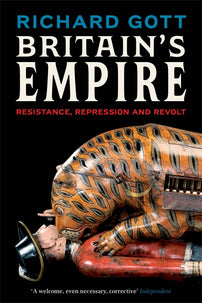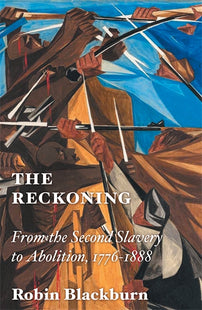Verso in Bolivia (1967)
Verso has always been committed to socialist internationalism. This despatch, written by Richard Gott in 1967 just months before Che Guevara's murder, illustrates the intersection between Verso's publishing and political commitment.

“The duty of every revolutionary is to make the revolution.” For many young radicals in the 1960s, these words from Fidel Castro’s Second Declaration of Havana were instructions to be taken seriously. Richard Gott’s despatch from Bolivia, published in The Guardian on 19 August 1967 and reproduced in full below, exemplifies how this internationalist revolutionary commitment translated into political action that would shape a generation of left-wing thinkers. When Gott wrote his despatch, Ernesto “Che” Guevara was still alive, but his guerrilla band was disintegrating. They were surrounded. CIA orders were to kill Che, not to capture him alive. On 9 October, 1967, that is exactly what the Bolivian Army and its CIA advisers did. Gott, who had met Che in Cuba, was the only person present who could definitively identify the body.
One of The Guardian’s most respected foreign correspondents, Gott had traveled to Bolivia that summer to cover the trial of the French philosopher and journalist Régis Debray. Already an immortalized figure of revolutionary internationalism, Che had left the safety of Cuba earlier that year to lay the groundwork for a revolution in the Bolivian oil town of Camiri. In the spring of 1967, he had invited Debray, who had been working as a lecturer in philosophy at Cuba’s University of Havana, to be the first journalist to report on the guerilla base Che had been clandestinely setting up in the Andes. 26 years old at the time, Debray had already established himself as an expert on Latin American politics and as a respected theorist of revolutionary strategy. His analysis of the political conditions for revolution across Latin America in Revolution in the Revolution served as a crucial technical document for revolutionaries like Che who sought to replicate Cuba’s successful revolution across the continent. Shortly after Debray arrived in the country, however, the Bolivian army discovered some of the guerillas’ activity and placed Camiri under military control. Debray was arrested not long after, accused of being a guerilla-collaborator, and tortured for withholding information about Che’s whereabouts. Ciro Bustos, a close Argentinian collaborator of Che’s, was arrested alongside Debray and held in the same prison. His memoirs, which describe his relationship with Che and captivity in Bolivia, were published by Verso in 2013.
Debray’s arrest attracted international attention as his well-connected conservative mother sought desperately to liberate him. Fearing for Debray’s life, the Cuban government approached Bertrand Russell about despatching a team of observers from the Russell Peace Foundation to attend his trial. Tariq Ali had recently worked with the Foundation on the International War Crimes Tribunal On Vietnam, providing photographic evidence of the crimes the US military was carrying out against the Vietnamese people. Despite his lack of Spanish, the Foundation decided to send Ali to Bolivia to take photographs along with Russell’s mercurial secretary, Ralph Schoenman, and New Left Review editors Perry Anderson and Robin Blackburn. Posing as politically-aloof journalists, the Russell delegation arrived in Camiri and attempted to convince the authorities to allow them to visit Debray in his cell in order to confirm his safety and let him know that his comrades had not abandoned him. Succeeding in this task, Ali and Blackburn were granted permission to briefly enter Debray’s cell to photograph him for the international press, but not without being invited on a guerrilla-hunting expedition they couldn’t refuse. As Gott alludes in his despatch, during that outing Ali was mistaken for Che’s bodyguard, a man known as Pombo, and held in a Bolivian prison overnight. Ali recalls the experience in detail in his book, Street Fighting Years, admitting that “to say that I was scared would be an understatement.” Upon his release from military detainment the next morning, Ali spoke to Schoenman who urged him to leave the country, fearing that he may not be treated with the same lenience were he mistaken for Pombo a second time. By that point, hotels in both Camiri and the country’s capital, La Paz, were inundated with international journalists tasked with reporting on Debray’s fraudulent trial. Ali ran into Richard Gott on his last night in the country and explained why he had to flee. When he left Bolivia the next morning Ali was carrying Gott’s despatch, hidden under his clothes, with strict instructions to hand deliver it to The Guardian once he reached London.
This episode illustrates the commitment to socialist internationalism that has always been at the heart of Verso’s publishing project. Tariq Ali, Perry Anderson, Robin Blackburn, Régis Debray, and Richard Gott each went on to become Verso authors, publishing with a breadth that speaks to political and historical questions on every continent. We are recovering this moment of Verso history now because our distributors in the UK have gone bankrupt, owing the company almost a million pounds. We have launched a public fundraising appeal and we hope readers who share our strong internationalist commitment might contribute to it. We are grateful to our authors, readers, and comrades for their enduring support and solidarity.
– Michal Schatz
***
De Gaulle appeal for friend of Castro
From Richard Gott
Judging by the sudden descent of the international press on this remote and isolated country, the world, if it was ever ignorant of events in Bolivia, is shortly to be massively enlightened.
The occasion is the trial, due to begin later today, of the young Left-wing French intellectual, M. Regis Debray, whose only known crime is that he is a friend of Dr Castro and that he has written a long pamphlet, “Revolution in the revolution,” which advocates guerilla struggle in Latin America as the only effective means of securing necessary political and social change.
In a country like Bolivia under its present military Government, a man who utters such sentiments or keeps such friends is automatically considered to be guilty of any crime that the military mind sees fit to devise. And Debray, who admits to having visited the guerrillas in the sub-topical easter regions of Bolivia, and to having interviewed Che Guevara there, has been accused of actually participating with them in fomenting armed revolution.
Three captured
He was captured almost four months ago in the main street of the village of Muyupampa, together with an Anglo-Chilean, and George Roth, and an Argentinian, Ciro Roberto Bustos. Roth, a professional photo-journalist, was eventually released, thanks in part to the efforts of the British Embassy, though he is still to be found rather nervously and disconsolately sitting in a hotel in La Paz awaiting permission to leave the country. He still appears a somewhat worried and preoccupied man.
Bustos, a 35-year old Argentine painter who arrived in the country with forged papers, is in a very different position, for no representative of the present Argentine military regime is likely to lift a finger to help him. Belatedly, a group of prominent Argentine citizens have in fact arrived in La Paz and they, together with Bustos’s young wife, may yet succeed in reminding the Bolivian Army that Bolivia is a signatory to the declaration on human rights.
Debray is more fortunate in that France does not lightly allow one of her brighter sons – he passed first at the Ecole Normale in 1958 – to languish indefinitely in foreign prisons. First and most formidable of his champions is his mother, for 20 years vice-president of the Paris Municipal Council. She is a supporter of M. Lecanuet, though she lost to a Gaullist in the March elections. She has been in La paz for more than two months and was recently joined by her husband, a distinguished and extremely amusing Parisian lawyer, who is so horrified by Bolivian justice that he has recommended his son to forgo the services of a lawyer.
Mixed bag
General de Gualle, too, has weighed in with a crisp letter to Bolivia’s President, General Barrientos, appealing for clemency. The French press with the exception of “L’Humanite,” which has serious ideological differences with Debray, has maintained a steady, almost daily, campaign in his favour.
Bolivia is full at present of a mixed bag of French, Belgians, and Italians, representing Regis Debray defence committees from their own countries. Even the Bertrand Russell Peace Foundation is believed to be here. There is a certain irony in seeing M. and Mme Debray, a very respectable conservative French couple, mixing with the Left-wing elements who are trying to bail out their own son.
Among others to be seen in La Paz should be counted the flamboyant figure of the Italian published, Signor Feltrinelli, who exotic floral ties would make even the impassive Aymara Indians blink, and the ubiquitous Tariq Ali, who narrowly escaped expulsion from the country on the grounds that he closely resembles a Cuban called “Pombo,’ believed to be operating with the guerillas.
(Your bearded correspondent, anxious not to give offence in this trigger-happy country, has trimmed his beard and has been rewarded for his caution by securing the express permission of General Ovando himself, the eminence grise behind President Barrientos, to travel to the guerrilla zone).
The trial is in the oil town of Camiri – the centre of the Bolivian Army’s anti-guerilla operations. The Hotel Lourdes and the one Italian restaurant are quite incapable of coping with the influx of journalists, and the more fortunate American correspondents are sleeping out under canvas, provided by the United States Army – present in an “advisory role.”
Debray’s story is that he came to Bolivia to interview Che Guevara; that he did so; and that he was captured by the Bolivian Army on leaving the guerrilla zone. The prosecution – if the trial is carried out fairly – will probably make much of the fact that he has been in Bolivia, in teh Camiri zone, before, and that, therefore, his connection with the guerrillas, who did not make a public appearance until March this year, is more than purely journalistic.
There is no death penalty in Bolivia, but if convicted, Debray faces a prison sentence of up to 30 years. At present there seems little prospect that he will receive a fair trial, and his liberty, if not his life, must still be regarded as being in danger.
Humiliation
The detention of Debray has undoubtedly not been a success for the Barrientos regime. Originally they almost certainly hoped, possibly with US support, that Debray could be paraded as a living witness to the fact that the guerrilla outbreak in Bolivia was planned, coordinated, and subsidised from Havana.
This has backfired, Debray is too obviously not implicated in organising the Bolivian guerillas. Instead, the outside world has been fed with stories of how he and the others captured have been tortured and humiliated before the trial has even begun. Debray was on hunger strike recently in protest at being made to wear a convict’s uniform, and although he is now in reasonable physical shape, he was undoubtedly severely mauled during the initial days of detention.
Now that the International press and television has moved into the town in force, it will be increasingly difficult for the army not to provide him with a reasonable trial, though there is still a very obvious danger that he might be shot “accidentally” or “while trying to escape.” Such solutions are not unknown in Bolivia, and M. and Mme. Debray are unlikely to feel reassured until they have their son out of this rather uncertain and insecure country.





